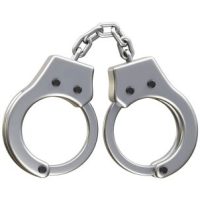Challenging Chain of Custody in Florida Meth Trafficking Cases

Being charged with methamphetamine (meth) trafficking in Florida can be a scary experience because, often, such charges carry mandatory minimum prison sentences and substantial fines. However, there are several ways to defend yourself if you are being charged with meth trafficking. One of the most effective defense strategies in such cases is challenging the chain of custody, which is a vital part of the prosecution’s case. If evidence was handled improperly, your defense attorney may be able to get it thrown out.
What Is Chain of Custody in a Meth Trafficking Case?
Chain of custody in a methamphetamine trafficking case is the documented sequence that shows exactly how the meth in question was managed from the time the police seized it. It illustrates how the evidence moved from;
- The arrest scene
- To the officer’s control
- To the evidence locker
- To the lab for testing
- And lastly, into the courtroom
A chain of custody document may include, among other details;
- Date and time of collection
- Location of collection
- Evidence description
- Date and time of transfer
- Reason for transfer
- Method of transfer
Why Is Chain of Custody Important in a Meth Trafficking Case?
Florida law imposes harsh penalties for methamphetamine trafficking. For instance, possessing just 14 grams of this substance can result in a mandatory minimum prison sentence of three years and a fine of $50,000. Florida recognizes the high stakes involved in these cases, which is why the prosecution must prove all the elements of the case beyond a reasonable doubt, including the correct handling of the drugs, before the defendant can be convicted.
Common Chain of Custody Issues in Meth Trafficking Cases
In a Florida meth trafficking case, the following are some of the common problems that can arise in chain of custody that could help your defense;
- Incorrectly labeled or unlabeled meth bags
- Absence of timestamps or signatures on evidence logs
- Improperly logged evidence
- Crime lab contamination or inconsistent results
- Testimonies of officers with no direct knowledge of the handling
Even a small gap in the chain of custody can be grounds for challenging the evidence.
How Do Attorneys Challenge Chain of Custody Issues in Meth Trafficking Cases?
An experienced drug defense attorney will take a detailed approach to challenging chain of custody issues in your meth trafficking case. They may;
- Subpoena all records and reports
- Question everyone who came into contact with the meth
- Compare police reports with lab intake documents to check for discrepancies
- Look for absent or unreadable signatures, damaged seals, or time gaps
- Submit a motion to suppress if they uncover any mistakes or irregularities in handling
What Happens After a Motion to Suppress Is Filed?
If the court grants the motion to suppress, the meth evidence will be excluded from the case. Without that evidence, the prosecution may no longer have a strong case against you. Often, this results in reduced charges, a more favorable plea deal, or even a full dismissal of the case. That is why it is vital to scrutinize the chain of custody if you are facing meth trafficking charges. It could be the key to protecting your freedom and securing the best possible outcome in your case.
Contact an Orlando Meth Trafficking Lawyer
If you are facing meth trafficking charges in Florida contact our experienced Orlando meth trafficking lawyers at Joshi Law Firm, P.A. for help developing a strong defense strategy.
Source:
leg.state.fl.us/statutes/index.cfm?App_mode=Display_Statute&URL=0800-0899/0893/Sections/0893.135.html

